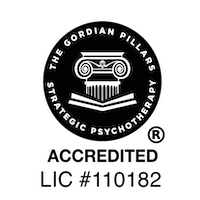Beat Low Self-Esteem
Solution-Focused Approach to Overcoming Low Self Esteem
It’s Your Time To Turn Inward
Brief and effective treatment to cultivate self-worth & a realistic self-image
Low Self Esteem
Low self-esteem tells you lies – that you’re not good enough and there’s something wrong with you.
- Low self-esteem makes it difficult to trust your abilities, perform, find love, or simply feel content with who you are.
- You dismiss your inherent value, your strengths, and the wonderful aspects of who you are.
- Constantly reflecting and replaying your inadequacies, weaknesses, failings and past mistakes.
A crushed self-esteem dents so many possibilities in life.

Signs of Low self-esteem: Are some of these relatable to you?
- You say to yourself “I’m not good enough”, “I’m inadequate”, “I don’t deserve”.
- You feel like a total fraud, and it’s only a matter of time before everyone else figures it out (i.e., imposter syndrome), despite your successes, skills and abilities.
- You struggle to say no and set a boundary.
- You see potential in everyone else, but struggle to recognise your own.
- You lack confidence and trust in yourself – a lot of self-doubt!
- You question your sense of belonging, your identity, and who you are.
- You people please, and neglect your own needs.
- A really strong inner critic, or harsh inner voice?
- You frequently compare yourself to others? Often not smart enough, attractive/pretty enough, or strong enough.
Additionally, If you tend to be a perfectionist or lean towards dichotomous (all or nothing) thinking, then you are also more prone to low self-esteem. These patterns push you to unrealistic standards. You feel you are never doing enough, or you could always be doing more. Low self-esteem is also very much linked to stress, anxiety (particularly social/performance), and even in more severe situations, mild to chronic depression.
Bottom line, when low self-esteem or the imposter syndrome hinders your abilities, it’s time to seek support. It’s time to act!
Take 20 minutes to forge a new direction.
Click below to discover your
best self!
Hi, I'm Matthew
Your Local Strategic Psychotherapist and Clinical Hypnotherapist in Albury Wodonga
Hello, and welcome to The Inward Process, proudly serving Albury Wodonga and online. I’m Matthew, and I specialise in helping people overcome low self-esteem, as well as the imposter syndrome. Whether, you’re stuck in self-doubt, perfectionism, or relying on others for validation, I’m here to help you break free so that you can reclaim your confidence, self-worth and unlock your potential.
Each session is designed specifically for you, recognising that your experience with low self-esteem and the challenges you face are unique to you. Together, we will use tried, tested and proven methods to go beyond just managing self-doubt and feelings of inadequacy – our goal is to overcome it completely. Building lasting self-trust, self-worth and the ability to assess yourself both realistically and compassionately.
Having personally struggled with low self-esteem—constantly feeling “not good enough”, a complete fraud and undeserving – I understand how deeply this affects the quality of your life. The strategic methods and approaches that helped me shift my limiting beliefs and self-imposed limitations, are now the same ones I use to support others in breaking cycles of feeling inadequate and excessive self-criticism.
I’ve supported clients from all walks of life—from students to high-achieving professionals—where I provide a supportive environment where you feel seen, heard and understood. Whilst focusing on solution oriented approaches to feel worthy, enough, and empowered to take confident steps towards what matters most to you.






How do we address Low Self-Esteem?
Despite a rise in people doing self-development in a world overflowing with self-help advice, low self-esteem and the imposter syndrome continues to rise. Why? Because most approaches completely miss the mark. Popular guidance or posts you see on social media consistently reduce these issue to negative thinking, self-sabotage, or a lack of self-love – urging you to simply “love yourself more”. Yet when loved ones or friends insist things like, “ooh but you are good enough”, deep down the person doesn’t believe them. It simply won’t work.
The trouble is these generalised approaches do not address the deep rooted processes at play. Whether you’re a business professional, academic student, entrepreneur who has a persistent feeling of being like a fraud, or an individual who feels undeserving of love and success in their life, the imposter syndrome and low self-esteem stems from automatic, unconscious processes with a series of steps that run on autopilot. You don’t deliberately do this, but there are unconscious, unexamined processes at play. So you can’t simply use self-love, positive affirmations or think your way out of it.
At The Inward Process, we take a different approach. The goal is not to have higher confidence or esteem necessarily. After all, self-absorbed narcissists and sociopaths have extremely high confidence levels and an inflated sense of self, but their skillsets and abilities don’t match up. The goal is for you to shift from an “unrealistic self-assessment” (what we deem low self-esteem/imposter syndrome) and shift this to develop a realistic self-assessment. Or a more realistic sense of self.
We want you to accept the good, the bad, the ugly. To have the self-awareness to accept where you are now and recognise that you are a working progress. There will always be room for improvement, but to dial down the self-criticism or inner voices saying you’re not good enough which doesn’t serve you. As well as the ability to assess yourself against credible, valid and appropriate external feedback, rather than how you solely think or feel in the moment.
Where your confidence and how you see yourself matches your skillsets and abilities. That is how you create a realistic self-assessment. That is the true outcome we strive for you to achieve at The Inward Process.
What we offer

Personalised sessions to overcome low self-esteem and the imposter syndrome
Every session is tailored to you, helping you to understand what low self-esteem and/or the imposter syndrome actually is, its causes, and most importantly, how to overcome them effectively.

Develop lifelong skills, tools and skillsets for a realistic self-assessment
Learn practical, empowering skills for a more balanced realistic self-assessment that accurately reflects your skillsets/abilities, confidence levels, as well as nurtures your growth and consistent progress.

Break free from cycle of low self esteem and imposter syndrome to reclaim control
You will learn how to break free cycle from the common patterns of low self-esteem and imposter syndrome, including self-doubt, an unrealistic self-assessment, harsh inner criticism and perfectionism.
Take 20 minutes to forge a new direction.
Click below to discover your
best self!
FREE Individual Recordings
Directly to Your Phone
Good therapy teaches you to operate differently in the world. We give you a range of resources to help discover a new way of being
Discover What is Possible
Frequently Asked Questions
Not sure yet? Here are the answers to some common questions
Low self-esteem refers to a distorted and often negative evaluation of one’s own worth or abilities. It involves a persistent belief that one is not good enough or unworthy, often despite evidence to the contrary.
Imposter syndrome is the feeling of being a fraud, found out, or inadequate, even when there is clear of success and competence. People with imposter syndrome, often believe their achievements are due to luck, external factors, and they fear being “found out” as not truly capable. They truly believe they are a fraud, and it’s only a matter of time before everyone else seems them as a fraud also.
Common signs of low self-esteem include:
- Self-doubt
- Harsh self-criticism,
- Fear or failure and avoidance of challenges
- Perfectionism
- They can’t take a compliment and dismiss any positive feedback, but amplify their shortcomings/weaknesses
- They dismiss all good aspects of themselves, and they amplify all the negative shortcomings.
- They feel undeserving of love and anything good in their life.
Low self-esteem develops from patterns of thinking and behaviour that a person has built over time. It’s not about specific childhood experiences, nor is it a disorder, but rather stems from an unrealistic self-assessment. That is individuals focus heavily on their perceived weaknesses/shortcomings, and overlook their strengths, leading to a distorted view self-view. Over time, the individual shapes an unrealistic self-assessment through patterns of thought and pattern including:
- Constant Self-Comparison: Frequently comparing oneself to others and feeling inadequate, or undeserving.
- Unrealistic Self-Assessment: Focusing on weaknesses while dismissing strengths, leading to a distorted self-view.
- Avoidance of Challenges: Fearing failure, they avoid risks/challenges, reinforcing feelings of inadequacy.
- Overreliance on External Validation: Seeking self-worth through others’ opinions, amplifying criticism and ignoring positive feedback.
- Intolerance for Ambiguity: Struggling with uncertainty, often fearing rejection and underestimating their own abilities.
- Perfectionism: Setting unattainably high standards and feeling like a failure when these aren’t met.
- Negative Thought Patterns: An internal dialogue dominated by self-criticism, which makes it hard to recognise successes or progress.
Many people are exposed to environments or social media pressures that emphasise unrealistic standards of success, beauty or achievement to name a few. When individuals internalise their pressures without balancing them with a realistic self-assessment and failing to recognise that they are a working progress, self-doubt and inadequacy develops over time, leading to low self-esteem.
The root cause of low self-esteem often lies in unrealistic self-assessment, where individuals commonly overemphasise their weaknesses and failures while discounting their strengths and successes. Their confidence levels do not match their actual skillsets and abilities, leading to a skewed self-assessment of their worth and capacities.
Low self-esteem is a problem because it limits the individual’s ability to take action, try new things, or pursue meaningful goals. It can lead to patterns of avoidance, perfectionism, a negative cycle of self-doubt, making personal growth and success much harder to achieve. Left unaddressed, low self-esteem can severely impact one’s quality of life.
A significant red flag of low self-esteem is persistent negative self-talk or a harsh internal dialogue. Individuals with low self-esteem often have an internal critic that amplifies their weaknesses, dismisses their strengths, and constantly questions their worth. This pattern of thinking can create a cycle of self-doubt, perfectionism, and avoidance, making it difficult for them to trust their own abilities or take positive action.
People with low self-esteem act in ways rooted in self-doubt and fear of failure. These may include:
- Avoidance of Challenges: They steer clear of risks or new opportunities, fearing mistakes or rejection.
- Reliance on External Validation: They depend heavily on others for approval but often dismiss compliments while focusing on criticism.
- Perfectionism: They set unrealistically high standards, feeling like failures when they fall short.
- Self-Comparison: They constantly measure themselves against others, believing they are inadequate.
- Overthinking: They struggle with uncertainty, overanalysing situations and underestimating their ability to handle them.
These behaviours, driven by distorted thought patterns and an unrealistic self-assessment, often reinforce feelings of inadequacy, creating a cycle that perpetuates low self-esteem.
Strategic psychotherapy, first constructed by Jay Haley, is a solution-oriented approach that targets the underlying patterns and beliefs contributing to low self-esteem. It aims to help individuals identify and transform limiting thought processes, allowing for a more realistic and positive self-assessment. Rather than exploring past events, or their childhood, it focuses on creating actionable steps to break cycles of self-doubt, and build true competence.
Clinical Hypnotherapy is a therapeutic method that uses guided relaxation techniques to access a focused, heightened state of awareness, often referred to as hypnosis. For low self-esteem, this approach can help uncover subconscious beliefs, challenge and replace negative self-talk with empowering, positive perspectives. It also address underlying cognitive patterns like perfectionism, and excessive self-criticism that contribute to low self-esteem, to support lasting emotional and behavioural change.
When combined with strategic psychotherapy, clinical hypnotherapy is extremely effective in treating low self-esteem, or as we view it, an unrealistic self-assessment. First step is to create a more balanced sense of self, and assessing their capacities on their actual performance and external evidence from appropriate, rather than their own internal thoughts, doubts and feelings solely. Ultimately, treating low self-esteem is about helping individuals shift to a new process, from destructive patterns of thinking and behaviour, to more adaptive processes.
Hypnotherapy is very effective in doing just that. It helps the individual reclaim control (internal locus), break the cycle of avoidance, techniques/tools to challenge negative self-talk, reduce the need for external validation, combat perfectionism, and helping individuals become more comfortable with uncertainty/ambiguity with their lives.
During a hypnotherapy session for low self-esteem, clients are guided into a state of deep relaxation and focus (known as a trance state) to explore and address unconscious beliefs and patterns that contribute to low self-worth. Here’s what you can expect:
- Initial Interview, Goal Setting, and Expectations
We begin the session with a collaborative interview where goals and expectations are clarified, and immediate concerns are addressed. The therapist will ask strategic questions to understand your unique challenges with self-esteem, helping to identify specific patterns, like self-criticism or reliance on external validation, that need attention. - Hypnotherapy Session
Following the interview, the therapist guides you into a deeply relaxed, focused state for about ~15 minutes. In this trance state, we work directly with the unconscious mind to address limiting beliefs and replace negative self-talk with constructive, empowering suggestions. These suggestions are designed to reshape the self-assessment process, helping you recognize strengths and build a more balanced view of yourself. - Post-Session Reflection and Reinforcement
After the hypnotherapy session, you’ll return to a fully alert state, and we’ll discuss insights from the experience. Follow-up tasks may be assigned to reinforce the progress made, helping integrate positive self-perceptions into your daily life. You’ll also receive a recording of the session, allowing you to revisit and strengthen these new perspectives between sessions.
This process supports a profound shift in how you see and value yourself, building self-esteem that’s grounded in realistic, positive self-assessment.
Typically, the first session lasts 90 minutes with an extended interview and the following sessions last 60 minutes, or slightly longer if required, and time permits. This enables sufficient time to explore core beliefs, instil new techniques, and associations designed to overcome low self-esteem.
Yes, online therapy has proven to be just as effective as in-person sessions for many clients. With the right environment and a stable internet connection, online therapy can provide the same focused, supportive experience, allowing you to address low self-esteem from the comfort of your own space.
Typically, for low self-esteem, the first session lasts 90 minutes with an extended interview and provided psychoeducation on low self-esteem. The following sessions last 60 minutes, or slightly longer if required, if time permits. This enables sufficient time to explore core beliefs, instil new techniques, and associations designed to overcome low self-esteem.
Yes, hypnotherapy voice recordings are provided as part of the session for low self-esteem if you choose, and with your consent. This way you can take onboard learnings, insights and reinforce this learning, enabling continual growth and progress outside of our session times.
Typically, the first session lasts 90 minutes with an extended interview and the following sessions last 60 minutes, or slightly longer if required, and time permits. This enables sufficient time to explore core beliefs, instil new techniques, and associations designed to overcome low self-esteem.
